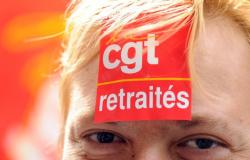Located in the heart of the commune of Rufisque Est, Lendeng, an agro-ecological zone covering an area of 56 hectares, which supplies a large part of the Dakar market with horticultural products, is about to give in to housing pressure. . This space, subdivided into national domain, private titles and State titles, is seen to be occupied day by day by the owners. Hence the real threat of job losses but also of a halt in horticultural production. Sud Quotidien made an incursion there to understand the threats to this fringe of farmers as well as the obstacles to food self-sufficiency
It is 10:30 a.m., but the sun is already spreading its fiery rays in a clear sky. On the lands of Lendeng, commune of Rufisque Est, market gardening fields and houses are next to each other and intermingle in places. This situation says a lot about land pressure in the area. This basin conducive to the production of vegetables, salad, cabbage, carrot, Chinese parsley, turnip and eggplant among others, is strongly threatened with extinction. This, because of the occupation of private titles and state titles. In the perimeters of cultivation, we can see irrigation pumps. Men and women are busy pulling weeds by hand, laying down mulch to prevent the formation of weeds. Others process the plants or harvest the products ready for consumption and marketing.
Mamadou Ka, president of the Association of market gardeners of Lendeng, surrounded by his family, shares a tea under a tree. On the spot, not far from exit 10 of the toll highway, visually, this basin seems uninhabitable, but the concessions occupy a large part there, thus shrinking the agricultural space. An “aggression” that does not leave Mamadou Ka indifferent. Surrounded by his family, sharing tea under a tree, he vehemently denounces this situation, not without once again asking the authorities to quantify the real threats to food self-sufficiency advocated urbi et orbi by the public authorities. Mr. Ka is also and above all concerned about the many job losses that this dispossession or reassignment of Lendeng land could cause as damage.
Reinforcing his point, he brandished the decree of the sub-prefect of the arrondissement of the said locality, dated April 14, 2022, and prohibiting work on part of the subdivision called “Extension series G of Rufisque Est”. On the strength of all this, the leader of market gardeners in Lendeng thinks that with a firm will from the public authorities, it is quite possible to stop this pressure on land. “The state has enough intelligence resources to put an end to it,” he believes. He pursues : “As president of the Lendeng Market Gardeners’ Association, I asked all the members of our group not to give up any more plots for anything”. For Mr. Ka, “The selling price is not worth it. What we earn here is far better than what a Sococim worker earns”.
Even in terms of quality, the president of the market gardeners of Lendeng, affirms that their production “is much better than imported products”. Better, he adds that their activities in this area fit perfectly with “the strategic orientations of food sovereignty of the State of Senegal”.
Desperate to see, day after day, the land perimeter of their horticultural area being reduced, either by the extension of Sococim or by the strong pressure of urban land. He defends himself thus: “Here some 148 market gardeners work all year round (... ) And I can assure you that the agricultural employment potential of Lendeng far exceeds that created by Sococim”. Besides, “nobody is ready to give up their field to Sococim”, does he know. Because he says: “what we earn from horticultural exploitation in this area is by far incomparable to what the industrialist could pay a worker “. SO, “we ask the Head of State to put an end to this land grabbing”.
Lendeng’s agricultural activities contribute to the development of related activities such as crafts, transport, trade. Which activities constitute a network of interdependent actors for itinerant traders. These activities provide market gardeners with a large part of the inputs (pesticides, seeds, fertilizers). Small craftsmen from whom market gardeners buy and have their small agricultural equipment repaired; transporters (vehicles, clandos, carters); to ensure the delivery of fertilizers to farmers but also of agricultural products to traders in the major markets of Dakar or in the interior of the country.
As for the caterers, the opportunity to sell their services is offered to them, as well as to cattle breeders in the peri-urban area who sign contracts with market gardeners to exchange crop residues for manure. Horse breeders in the peri-urban area who sell huge quantities of manure to market gardeners.
All these direct and indirect activities contribute to the economic vitality of the area. Wanting to be convincing, President Mamadou Ka said this: “many seasonal workers come to us from the surrounding area, from the interior of the country but also from countries bordering Senegal, such as Gambia, Guinea Bissau, Mali to earn a living”. Astou Aw, a farmer in the area, calls on the state not to throw them out to pasture. “We ask the rulers to let us cultivate this land. Because we only have that to survive. Any action to the contrary would only increase poverty. However, this same State is in the process of fighting against politics”.
Illegal operators in the crosshairs 4
The part of the administrative subdivision authorized by decree n°724/MRUHCV/DUA/FSN of May 29, 2017 by the sub-prefect of the district of Rufisque Est, is prohibited from any earthworks, demarcation or other work.
Covering an area of 56 ha, this space composed of the national domain, private titles and State titles to be erected in an agro-ecological zone by decree and exclusively reserved for market gardening called “Lendeng” is the subject of a litigation.
Moreover, this land dispute had led in 2017, the Minister of Urban Renewal, Housing and the Framework, Diène Farba Sarr to issue an order authorizing the subdivision of unregistered land (Tni) called “Extension A of the series G of Rufisque Est” located in Rufisque, with an area of 15 hectares 95 ares 32 centiares on behalf of the municipality of Rufisque Est.
This ministerial decree, in its first article, stipulates that the municipality of Rufisque is authorized, subject to the rights of third parties and the administration, to proceed with the subdivision of an unregistered plot called “extension A series G” of a capacity of 15 hectares 95 ares 32 centiares located in Rufisque. In article 2, the subdivision which includes four hundred and thirty-four (434) plots of land numbered from 1 to 434 with a capacity varying between 150 and 209 m2 as well as six green spaces, a chapel, school equipment, a sports, a police station, a market, a public place, a box of toddlers, and an Islamic institute must be carried out in accordance with the plans covered with the mention of approval.
In the said decree in its article 3, it is indicated that the developer transfers free of charge to the State or to the public authorities the rights of way necessary for the roads and the public facilities corresponding to the need for the subdivision and made necessary by its creation, after the completion Works. It also carries out an environmental impact study. In total, 8 articles of the said ministerial order were taken to assert what is right.
But this decree of the ministry was not enough to calm the situation opposing on the one hand the landowners and on the other hand the operators of the said land. Faced with this situation, the sub-prefect of Rufisque Est, Abdou Aziz Diagne, issued an order in April 2022 prohibiting work on part of the subdivision called “Extension series G”. With this decree, the administrative authority took, among other measures, pending the finalization of this procedure, that no initiative, other than market gardening, be taken in this area. On this site are authorized all earthworks and demarcation in agreement with the traditional occupants on the part of the subdivision in question. It is forbidden for both parties to intervene in one way or another in an area that is not reserved for them to avoid any risk of disturbance to public order. This order only applies to the area covered by the authorized subdivision and falling within the national domain.
THE EXPENSIVE SEN BILLS‘WATER AND THE RISE OF THE GROUND TABLE HAVE A NEGATIVE IMPACT ON THE INCOME OF FARMERS IN LENDENG.
Pathé Thiaw, foreman by profession, and coming from the municipality of Ndoffane (Kaolack region), is very happy to work in the fields of Lendeng since he earns his bread there, despite the high cost of water bills and the rise in the water table. And to say: “I find my account in this field that I was given to cultivate. At each harvest, 30% of the sale comes back to me. And I’m not complaining too much about it. Except, some difficulties related to the high cost of Sen’Eau bills and the rise in the water table worries me”.
Surprised to hear that the farmers of Lendeng use water from the Sen’Eau for cultivation, I express my astonishment. ” Ah good? I never imagined that the fields were watered by the Sen’Eau”. Pathé Thiaw reassures us: “It’s the same water that everyone uses. The only downside is the high bills. Personally, I just paid my monthly bill, only 2 days ago at more than four hundred and fifty thousand CFA francs (+450,000 FCFA)”. But this situation is far from discouraging them, even less from leading them to attempt immigration: “I admit that at times, discouragement tempts us. Especially when the water bill is very high and the financial means are not available”. To convince himself of this he says: the situation is difficult and I want proof of this, farmers who have simply been deprived (cut off) of water in their fields, for not having paid their bill”. Convinced that they have no choice but to deal with it, he declares: “We are responsible for families, we have no choice but to be content with what we earn.” Because, “we can’t steal even less beg”he says.
Another difficulty noted in this agro-ecological zone is that of the rise in the water table. It remains a reality, because a good part of this agricultural space is no longer exploitable. “A lot of water stagnates here, preventing us from exploiting more space. And this, for two years now that the rise in the water table has posed serious difficulties for us. This water salinizes the land, thus making a large part of the land unusable”.






